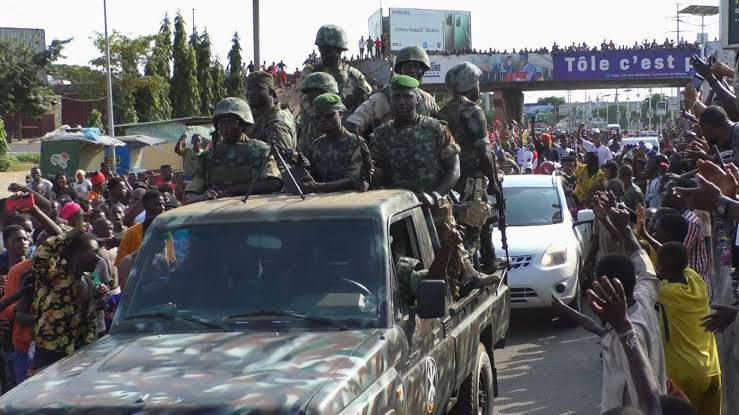Annika Hammerschlag
Burkina Faso has become the latest West African country to have its government overthrown by the military. President Roch Marc Christian Kabore is the fourth head of state removed from power by a military in the region in the past year after coups in Chad, Guinea and Mali, which had two coups in two years. Analysts say frustration throughout the region has been fueled by the growing threat of Islamist violence and the displacement of millions of civilians.
Gunshots rang out near Burkina Faso’s presidential residence Sunday evening, according to witnesses, marking the start of the latest in a string of coups throughout the region. The events came a day after anti-government protesters took to the streets to voice their anger over President Roch Marc Christian Kabore’s response to a surge of jihadist-linked violence.
More than 1.5 million Burkinabe have been displaced by the conflict, up from just 8,000 in January 2018. The Burkinabe are not alone in their frustration over their government’s handling of the Islamic insurgency.
Issaka Souare is an African peace and security analyst and university lecturer in Guinea.
“The link is that these armed groups in general are attacking people. The soldiers are charged to counter these attacks and they are saying that they have been sent to the frontlines without being given the proper conditions or the proper equipment,” Souare said.
The event marks the 49th successful coup within 15 ECOWAS member states since 1960, Souare says, and the 8th in Burkina Faso alone.
Though the most recent coups in the region were sparked by security concerns, they differ from earlier uprisings, which were spurred by discontent over leaders’ attempts to cling to power.
Fahiraman Rodrigue Kone is a senior researcher with the Institute of Security Studies’ Sahel program.
“The governance and the democracy question is something still there. But now in the Sahelien countries the trend is clearly linked to the jihadist insurgency, which is really difficult for the elected government to fight against,” Kone said.
These evolving trends are reflected clearly in Burkina’s recent history. Kabore was elected in 2015 following the ousting of President Blaise Compaore, who stayed in power for nearly three decades.
Now, angered by their elected government’s inability to fight extremist groups, citizens backing the coup want change.
In November, Burkinabe forces suffered the deadliest attack by Islamic militants since the crisis began in 2016, losing some 50 soldiers in a single day.
Credits/VOA

